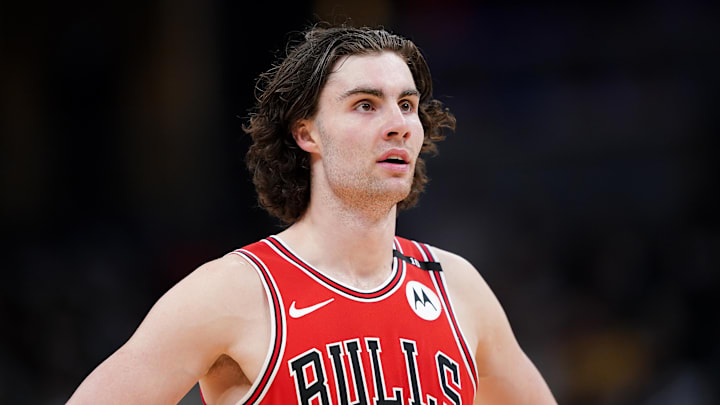An end isn't in sight for Josh Giddey and the Chicago Bulls to finalize a new contract. Nonetheless, the same can be said for the rest of the league's restricted free agents. Brooklyn Nets' Cam Thomas, Golden State Warriors' Jonathan Kuminga, and Philadelphia 76ers' Quentin Grimes all remain unsigned.
Prior to the onset of free agency, Thomas' Nets were the lone team with capable spending power to lure a restricted free agent. Yet, according to NBA insider Jake Fischer, the Nets aren't using their cap space to pursue free agents. Moreover, Brooklyn hasn't even engaged Thomas in contract negotiations.
Restricted free agents' leverage in the 2025 offseason has all but vanished. Thus, there's real discourse as to whether each of the aforementioned players will wind up playing next season on their respective qualifying offers, ranging from $6 to $11 million.
Giddey and the Bulls remain distant in contract talks
Although there have been some candid updates relating to Giddey's restricted free agency, Fischer described just how far the two parties are apart on a potential deal. The insider wrote, "This time, Giddey's representation has not wavered in its pursuit of a $30 million annual salary, sources say, while the Bulls' offers have been much closer to $20 million."
While a $10 million difference isn't all that drastic, it is in the grand scheme of things. The 22-year-old's preferred contract term is said to be five years. Less than a year ago, Chicago Sun-Times' Joe Cowley first reported that Giddey sought a "Jalen Suggs-like deal," which coincidentally is $30 million per annum. Into July, nothing has changed.
It certainly seems as if Giddey's camp is hankering to replicate Suggs' contract. If it were up to the Bulls, a five-year, $100 million deal would be most reasonable. However, that hypothetical contract is a vast $50 million difference from Giddey's preferred lump sum.
Having Giddey play next season on his $11.1 million qualifying offer is a risky strategy. If the Aussie exceeds expectations, he'll easily be worth more than his preferred $30 million per season price tag. Conversely, if Giddey struggles, his leverage next offseason is lost. It's a two-way street.
Still, the safest option is to sign Giddey to a long-term pact—he's only 22 years old. Thus, locking in Giddey to the core as early as possible is consequential. Furthermore, extending Giddey now, considering the current salary cap, will pay dividends before the cap space increases exponentially in the coming seasons.
